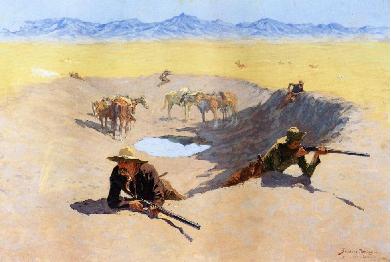À la Stefan Sweig

Esta sección está dedicada a los momentos estelares de la Humanidad. Y dedicado al hombre que hizo popular este tipo de narrativa a través de su obra maestra: Momentos estelares de la Humanidad.
Sweig, entre su recopilación de ensayos históricos, recoge uno que admiro particulamente. No conozco se haya narrado o mencionado en ningún otro sitio, pero Sweig lo recoge con verdadero entusiasmo y admiración: la resurrección de Handel. El momento de la creación del oratorio más maravilloso, El Mesías, y la influencia en la vida del artista. Lo recomiendo.
El objeto de esta sección es recoger de manera breve aquellos otros momentos históricamente relevantes cuya narración haya sido reflejada de manera brillante, tal como el momento narrado se merece. Se aceptan sugerencias.
* * *
La conquista de México es un tema muy tratado, pero nadie, creo yo, ha contado esta sucesión de hazañas mejor que el historiado británico Hugh Thomas en su ya clásico La Conquista de México. Intentaré en breve recoger aquí una pincelada de uno de los momentos más intensos de la narración, el de la decisión de quemar las naves, por ejemplo.
* * *
La Caída de Constantinopla. Contada maravillosamente por la pluma de Steven Runciman en su libro homónimo y editado por Cambridge University Press. El clímax de la obra, por supuesto, se centra en el día mismo de la entrada de las tropas turcas y de sus mercenarios (muchos de ellos de países cristianos) en la ciudad; la muerte heroica del emperador bizantino; las heroicidades de los voluntarios genoveses, venecianos, catalanes, e incluso la misteriosa y no menos heroica intervención de un caballero castellano... Ay, qué gran película, si hubiera buen señor que la hiciera! Pero cuántas otras cosas no pasaron en este largo asedio.
He aquí un extracto del momento cumbre:
"At 1AM the sultan launched the final attack on Constantinople. He would wear them down before risking his best troops in the battle. It was his irregulars, the Bashi/bazouks, whom he first sent forward. There were many thousands of them, adventurers from every country and race, many of the Turks but many more from Christian countries, Slavs, Hungarians, Germans, Italians and even Greeks, for the pay and the booty promised. Most of them provided their own arms. Mehmet II placed behind them a line of military police, armed with thongs and maces, whose orders were to urge them on and strike and chastise any who showed signs of wavering. Behind the military police were the sultan's own Janissaries. At the corner of the Blachernae wall there was , half-hidden by a tower, a small sally-port known as the Kerkoporta (…) but someone returning from a sortie forgot to bar the little gate after him. Some Turks noticed the opening and rushed through it into the courtyard behind it and began to climb up a stairway leading to the top of the wall (…) at that moment a worse disaster occurred (…) a shot fired at close range from a culverin struck Giustiniani and pierced his breastplate (…) Giustiniani's nerve was broken; he insisted on flight (…) they placed him on a Genoese ship. His troops noticed his going (…) most of them concluded that the battle was lost (…) The emperor and his Greeks were left on the field alone. (…) The Greeks resisted tenaciously. But the weight of numbers forced them to the inner wall. (…) Constantine turned his horse and galloped back to the Lycus valley and the breaches in the stockade. With him was his gallant Spaniard who claimed to be his cousin, don Francisco of Toledo (…) Theophilus Palaeologus and faithful comrade-at-arms, John Dalmata. Together trey tried to rally the Greeks, in vain (…) The gate was jammed with Christian soldiers trying to make their escape, as more and more Janissaries fell on them. Theophilus shouted that he would rather die than live and disappeared into the oncoming hordes. (…) Prince Orhan -a Turkish renegade- and his Turks fought on knowing what fate would await them if they fell into the sultan's hands; and the Catalans stationed below the old Imperial Palace resisted until they were all captured or slain (…) The Catalan consul, Péré Julia, was also executed, with five or six of his fellow-Catalans."
